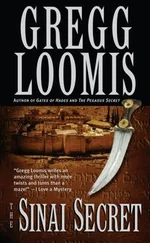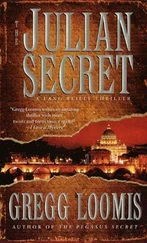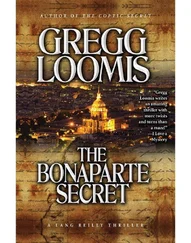Speaking of connected, the Rome airport had been a joke in years past, construction ongoing in what Lang and his peers had assumed was a permanent political boondoggle. Now it was finished. White concrete slabs, bowlike angles and portholes of tinted glass gave the international terminal a slightly nautical appearance. Inside, another surprise awaited. Elevators, escalators and stairs were also new, although their multidirectional confusion-was much the same as before.
Under the bored gaze of customs officials at the nothing-to-declare exit, Lang submitted his passport to cursory inspection before ducking into the first available men's, both from necessity and to see who from his flight might follow.
No one.
Opening his single bag, he swapped his Levi's and button-down shirt for French jeans and a shirt with the distinctive Italian taper. Oxblood Cole Haan loafers were exchanged for the Birkenstock sandals European men insist on wearing over dark socks. A mirror splattered with hairspray and streaked with substances best not inquired into gave him back the reflection of a man dressed in Euro-fashion, the combination of the worst a common market had to offer.
The unfavorable exchange of dollars for euros at the airport posed a financial hit. Still, he was willing to pay for the opportunity to see if anyone he recognized lingered while a machine completed what amounted to small scale extortion.
Another series of people-moving devices deposited him into the train station, the one place unchanged since his last visit. A pavilion like roof sheltered four tracks and a small arcade. He bought espresso from an old woman and a ticket from another machine. Then he sat, waiting for both the caffeine high and the train into Rome. Predictably, the coffee did its work before the Italian Railway. The train was as refreshingly new as the airport. Comfortable seats upholstered in tasteful blue fabric had replaced dirty and cracked vinyl. Instead of small, dusty windows and cramped aisles, the cars boasted panoramic views on either side of a generous aisle.
The ride was unchanged. Lang inevitably expected a countryside dotted with ruins of temples and crumbling arches, alabaster badges of glories past. After all, this was Rome, the Eternal City. All he ever saw from train windows were weed-infested switching yards, rusting rolling stock and the backs of drab housing projects. The same disappointing intrusion of the twenty-first century every time.
When he had brought Dawn here, she had found even the blight exciting. She had almost exploded with anticipation at each dreary stop, thrilled by the very names along the route.
Dawn.
She had enjoyed every second of life, delighted in the smallest detail. He saw her not in the modern coach but the old one, relishing the filthy vinyl of the seat, alternately staring at the Italians on board and craning her neck to make sure she missed nothing of the industrialized suburbs of Rome. For the forty-five minutes the trip took, her fascination with a foreign country's banalities never subsided.
Later, she admitted she found even the smells of the crowded coach exotic. Anyone thrilled by the aroma of fifty or so unwashed bodies reeking of garlic and hair tonic truly loved life.
Dawn.
He and Dawn stayed at a tiny hotel that had shared a piazza with the Pantheon for half a millennium. Then, the city had been romantic, fascinating, full of treasures at every turn. Now all he saw were the crowds and grime of one more big town, a place full of painful memories.
The train was creaking to a stop for Tiburtina, the end of the line, as he managed to set memories of Dawn aside as gently as he might handle fine porcelain. Where to stay? He rationalized that the place Dawn and he had enjoyed so much was too touristy, too likely to be found were someone searching for him. The big hotels, the Hassler and Eden, were even more obvious, places that catered to Americans. A number of smaller establishments were clustered along the remnants of the northern wall, hotels that offered modest prices and a view of the Borghese Gardens over the crumbling bricks of Rome's ancient perimeter. No good: haunts for Americans on package tours and budgets, students, academics and retirees. Worse, these hostels were within blocks of the embassy, their prices and location ideal for use by old acquaintances. He preferred not to encounter former comrades by accident. Too many questions to answer.
Assuming the people he sought weren't Italian, he needed a place where a foreigner would be rare, easy for him to spot as he tried to blend into the fabric of the city. There were a number of small, pricey inns along the Via del Corso, places where Armani salesmen from Milan and glass manufacturers' reps from Venice would stay to service the stores along one of Europe's most chic shopping districts. A possibility.
As the train shuddered to a final stop, he decided upon none of the above. Instead, he chose the Trastavere district. Lang remembered it from pre-Dawn days. Like some other urban areas separated from the main city by a river, the Trastavere considered itself different, more Roman than Rome, just as Brooklynites prided themselves on being the real New Yorkers or the residents of the Rive Gauche the true Parisians.
He had originally found the area's charm in its history. In the sixteenth century, it had been Rome's blue-collar neighborhood, home to the artisans who built the cathedrals, painted its frescoes and carved its monuments. Michelangelo and Leonardo had both stayed in the Trastavere. In modern times it had become a haven for the bohemian lifestyle, the residence of unemployed musicians and artists looking for patrons.
There was a trattoria on the Piazza Masti where he had shared pasta with a Czech defector. The food had been abysmal, the decor worse, featuring photographs of those two Italian-American icons, Sinatra and Stallone. The piano player had mangled American tunes of the fifties. He never considered taking Dawn there.
Next door had been a pensione, a few rooms in a district that made little accommodation for visitors, certainly none for the luxury demanded by Americans.
Perfect.
He spoke only a little Italian, mostly the tourist vocabulary of directions to the men's room and complaints about prices. And the universal "Prego," a chameleonlike word that could mean anything from "in a hurryn to "you're welcome." Unfortunately, his Latin was of about as much use as Chaucer's English would have been in today's America. Not that it mattered at the moment. The driver of the Opel taxi he took at the station was even more unfamiliar with the native language. Whatever the cabbie's linguistic shortcomings, it quickly became obvious he had acclimated to driving in Rome, using horn and gestures rather than brakes. Intersections without stoplights were tests of testosterone levels.
Since only about a fifth of the streets were wide enough for vehicles larger than the ubiquitous Vespas and bicycles, the ride was circuitous. From experience, Lang found it easier on the nerves to close his eyes, hold on and pray to Mercury, the Roman god of travelers in peril.
The cab lurched suddenly and Lang winced in anticipation of metal grinding against metal. Instead, he heard a stream of Italian invective fading behind them. He opened his eyes. The cab was on a bridge, the Ponte Palatina. The dull green Tiber, lined with trees, sloshed listlessly along in its concrete prison below.
Lang remembered an observation Dawn had made: Unlike Paris, London or even Budapest, Rome did not show its best face along its river. The Tiber was more like the city's backyard, she maintained, a nuisance towards which no major buildings faced, distant from the center of -ancient, medieval and modern Rome. As happened so often, she had verbalized a thought he had never quite completed. One more reason she left a gap in his life that he doubted would ever be filled.
Читать дальше












